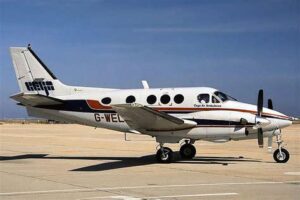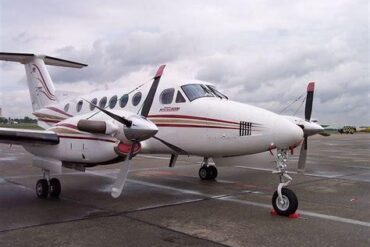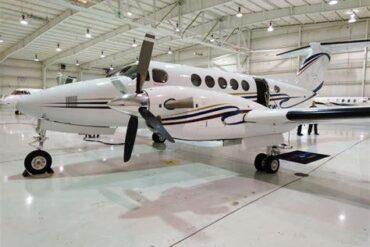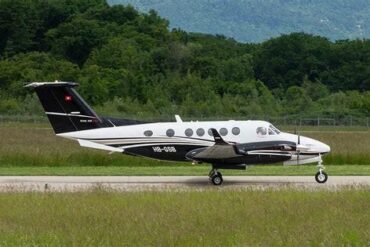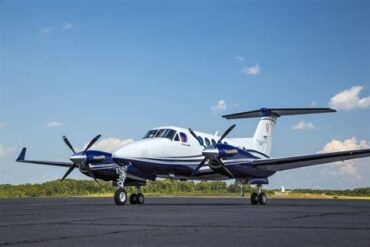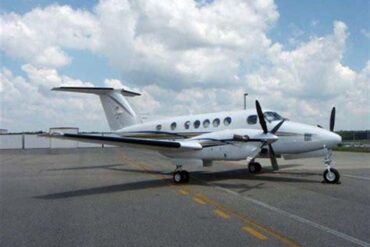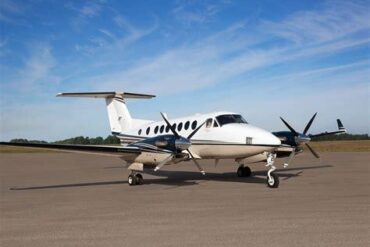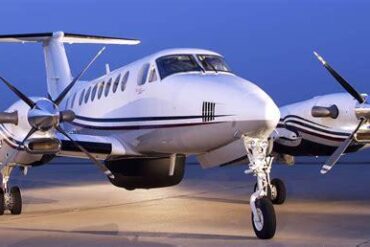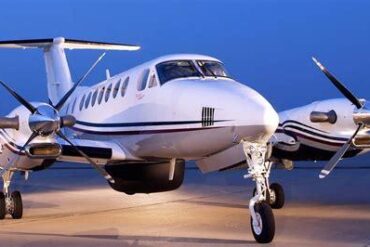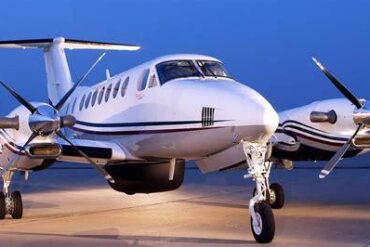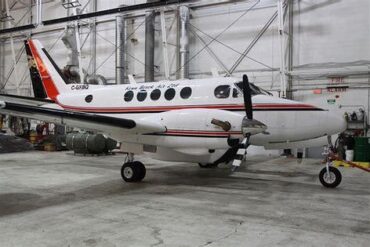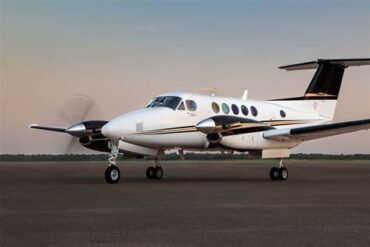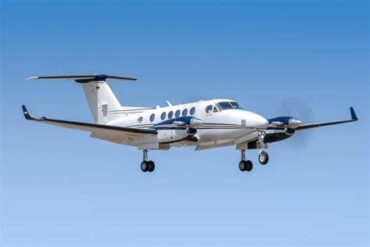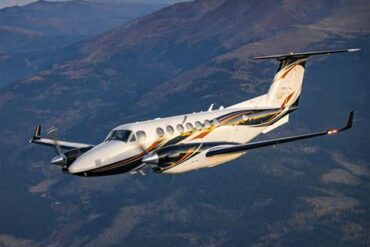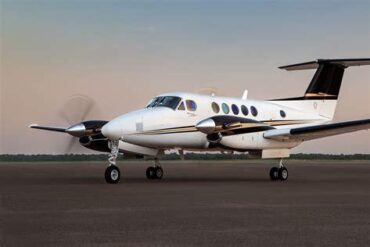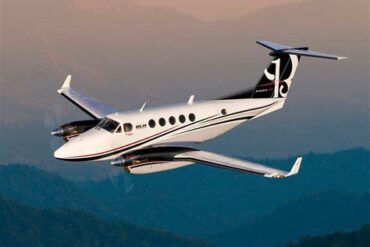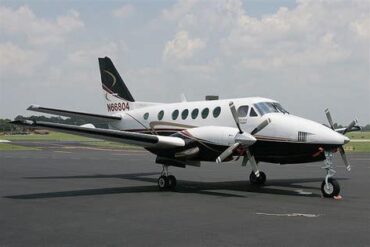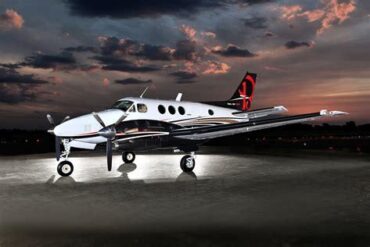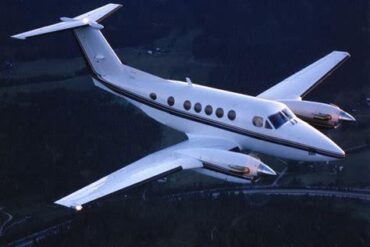The Beechcraft King Air E90 is a versatile twin-engine turboprop aircraft renowned for its reliability, performance, and luxury. Designed for both private and commercial use, the E90 model is part of the larger King Air family, which has dominated the market since its inception. With its spacious cabin, advanced avionics, and impressive range, the King Air E90 stands out as a top choice among business aviation enthusiasts. Understanding the price and operating costs associated with this aircraft is crucial for potential buyers and operators alike.
Price of the Beechcraft King Air E90
The purchase price of a Beechcraft King Air E90 can vary significantly based on several factors, including age, condition, and additional features or modifications. Typically, the market price for a pre-owned E90 ranges between $1.5 million to $3 million. Here’s a breakdown of the factors influencing the price:
1. Age and Condition
Older models may be available at lower prices, often appealing to budget-conscious buyers. However, it’s essential to consider the aircraft’s maintenance history and overall condition, which can affect its longevity and performance. An aircraft that has been well-maintained may justify a higher price due to lower anticipated operating costs.
2. Upgrades and Modifications
Many King Air E90s come equipped with various upgrades, such as enhanced avionics, upgraded interiors, and improved engine performance. These enhancements can significantly influence the price. For instance, an aircraft fitted with the latest Garmin G1000 avionics suite may command a premium price due to the advanced technology and increased safety features.
3. Market Demand
Like any other asset, the price of the King Air E90 is also subject to market demand. A surge in demand for used turboprop aircraft may lead to higher prices. Conversely, during economic downturns, prices may dip as supply exceeds demand.
Operating Costs of the Beechcraft King Air E90
Understanding the operating costs is vital for any prospective owner or operator. The King Air E90 boasts favorable economics compared to many jets, making it an attractive option for businesses looking to optimize their travel budgets. The primary components of operating costs include:
1. Fuel Costs
Fuel is one of the most significant ongoing expenses for any aircraft. The King Air E90 typically consumes around 30 to 40 gallons per hour, depending on the flight profile and operational conditions. Given the current average price of aviation fuel (approximately $5 per gallon), the hourly fuel cost can range from $150 to $200. This estimate can fluctuate based on fuel prices and operational efficiency.
2. Maintenance Costs
Regular maintenance is essential for ensuring the aircraft’s safety and performance. The King Air E90 generally incurs annual maintenance costs ranging from $50,000 to $100,000. This cost includes routine inspections, necessary repairs, and component replacements. It’s advisable to set aside a budget for unexpected repairs, which can arise as the aircraft ages.
3. Insurance Costs
Aircraft insurance is another essential aspect of operating costs. The insurance premiums for the King Air E90 can vary widely based on factors such as the pilot’s experience, the aircraft’s value, and usage. On average, owners can expect to pay between $20,000 and $30,000 annually for insurance coverage.
4. Pilot and Crew Salaries
For businesses that require a dedicated flight crew, salaries represent a substantial part of operating expenses. Depending on the region and crew experience, salaries for a King Air pilot can range from $75,000 to $150,000 per year. Additionally, if the operation includes flight attendants or other support staff, these costs must also be factored into the overall budget.
5. Hangar Fees
Storing the King Air E90 at a fixed base operator (FBO) or airport facility will incur hangar fees. These fees can vary dramatically based on location and the type of facility. On average, monthly hangar fees can range from $500 to $2,000. In busy airports or metropolitan areas, fees may be at the higher end of this spectrum.
6. Depreciation
While not an immediate out-of-pocket expense, depreciation is an important financial consideration for aircraft owners. The King Air E90, like all aircraft, will depreciate over time, impacting its resale value. Owners should anticipate an annual depreciation rate of about 5% to 7%, which should be factored into long-term financial planning.
Performance Metrics of the King Air E90
The performance capabilities of the King Air E90 further justify its popularity among business aviation users. Here are key performance metrics that highlight its efficiency:
1. Range
The King Air E90 has a maximum range of approximately 1,600 nautical miles. This range allows for non-stop flights between major cities, making it ideal for business travel where time is of the essence.
2. Speed
With a cruise speed of around 250 knots, the E90 ensures timely arrivals at destinations. This speed is competitive for turboprop aircraft, providing a quick and efficient means of transport.
3. Payload Capacity
The payload capacity of the King Air E90 is roughly 1,500 pounds, allowing it to carry passengers and luggage comfortably. This feature is crucial for business trips, where cargo space may be a priority.
4. Cabin Comfort
The cabin of the King Air E90 is designed for comfort and productivity, offering seating for up to eight passengers. The spacious interior can be customized with luxury finishes, catering to the preferences of discerning travelers.
Conclusion: Investing in the King Air E90
The Beechcraft King Air E90 presents a compelling case for those seeking a reliable and efficient turboprop aircraft. While the initial purchase price can be significant, the overall operating costs are competitive, especially when compared to jet aircraft. Its impressive performance metrics, combined with a comfortable cabin and strong resale value, make it an attractive investment for both private and commercial operators.
In summary, understanding the price and operating costs associated with the King Air E90 enables potential buyers to make informed decisions. As the demand for versatile, efficient aircraft continues to grow, the King Air E90 remains a leading choice in the business aviation sector.
